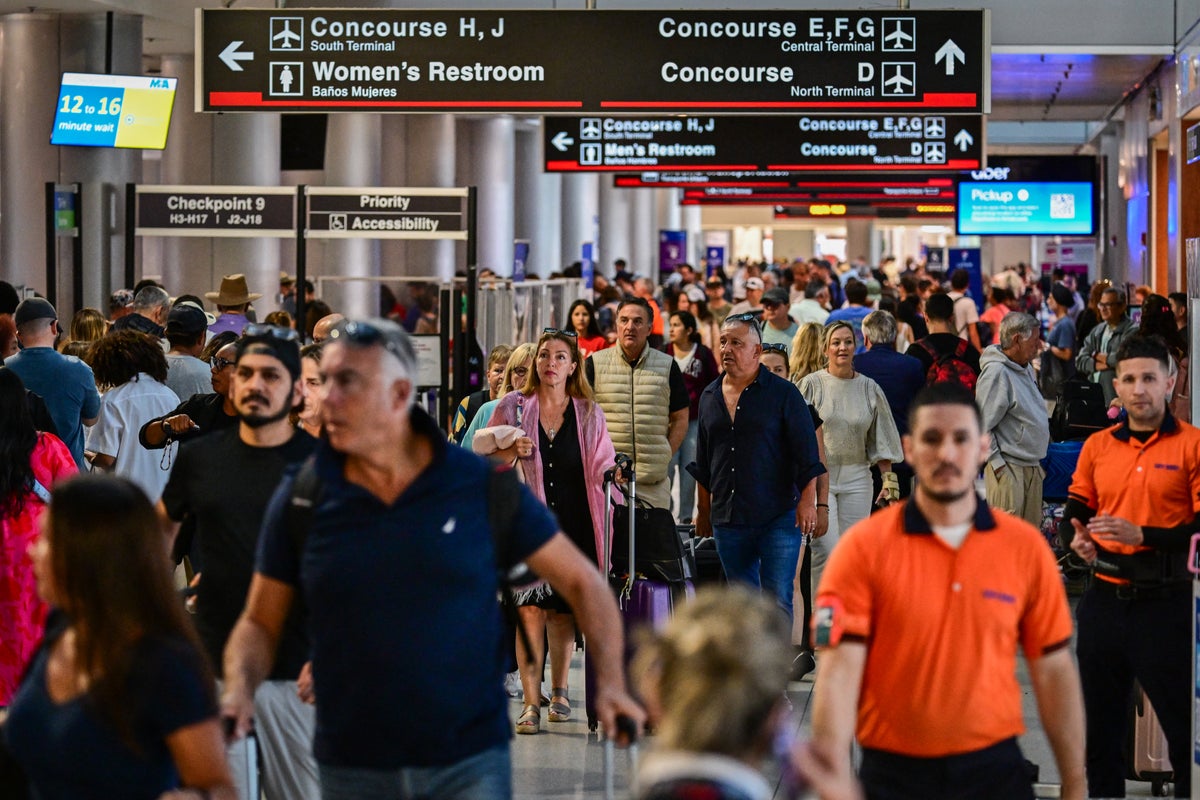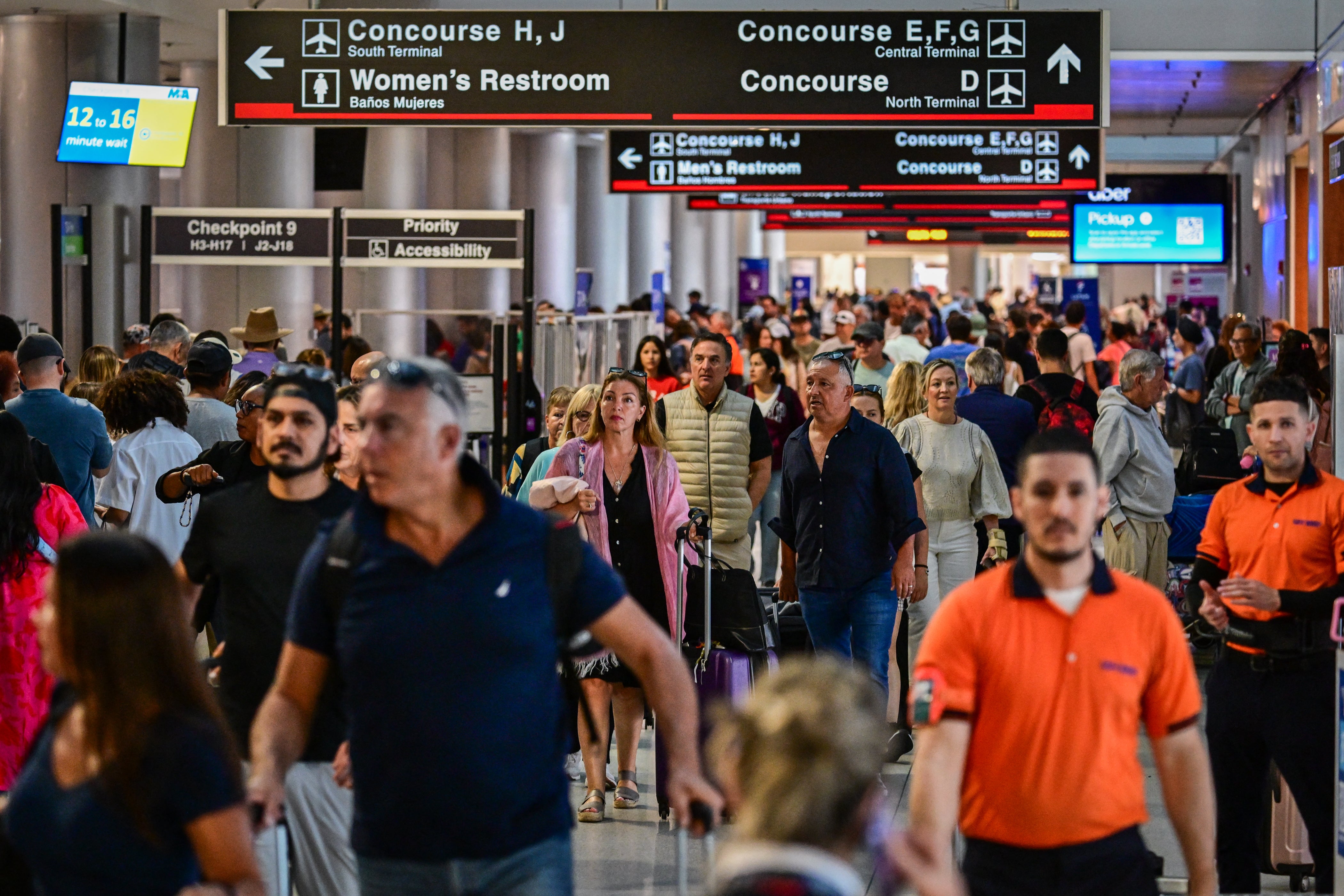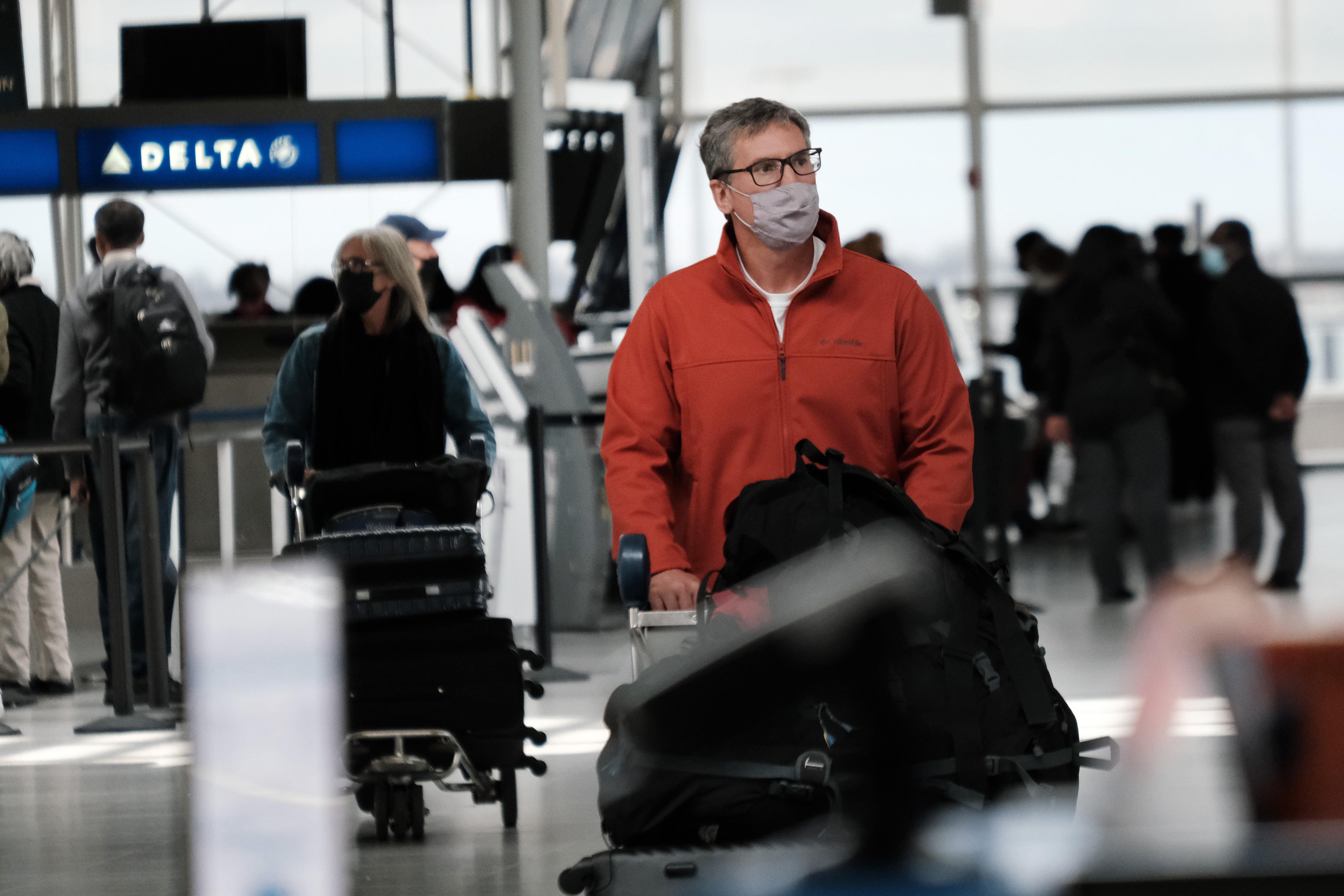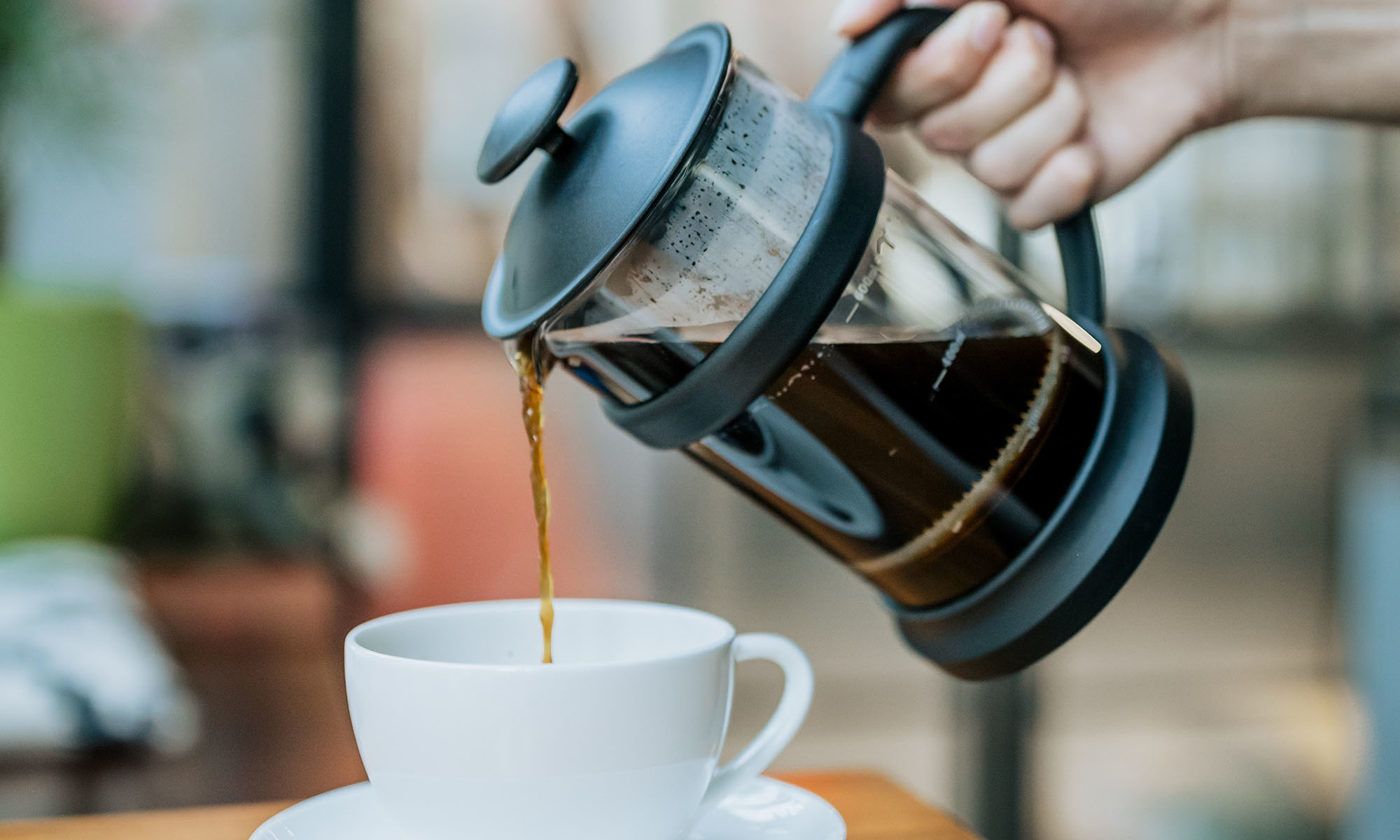How to avoid getting sick at the airport this summer
A record number of travelers are expected to fly this Fourth of July weekend — and there are easy precautions you can take to avoid picking up a virus

A record 72.2 million Americans are expected to travel in the U.S. this Fourth of July weekend. An unprecedented 5.84 million of them are projected to take to the skies, marking a 1.4 percent increase over the previous record, according to AAA.
A trip to the airport can be stressful enough without worrying about getting sick — but many people spread illness when they travel. This year, cases of measles have been reported in travelers at airports around the country.
While the risk of measles may be low – especially among people who are vaccinated – there are other viruses and bacteria to be wary of. Some can also linger in the air and on surfaces.
Taking precautions may be the difference between a joyful vacation and a nightmare trip.
“You can assume that travel will increase the risk of getting sick, and none of us wants to get sick while traveling, Dr. Henry M. Wu, an associate professor at Emory University School of Medicine and director of the Emory TravelWell Center, told BuzzFeed. “It makes sense to take extra precautions we don’t do on a daily basis.”
Here are steps you can take to keep safe this summer holiday season...
Wash your hands and seriously consider packing wipes

The plastic TSA bins have been found to have E. coli and other gross illness-causing bacteria.
"They're all bacteria that we find normally in our intestines so we call them fecal bacteria,'' Dr. Susan Whittier of Columbia University Medical Center previously told TODAY national investigative correspondent Jeff Rossen. "It just means that those surfaces are contaminated with poop."
So, consider using germ-killing hand sanitizer, wipes, and regularly wash your hands while traveling.
Be mindful when touching counters, bathroom doors, water fountains, and payment screens. The check-in kiosks are really grotty, too (the airport toilets were found to be much cleaner).
Keep your belongings off the ground! The checkpoint floors can potentially spread cutaneous herpes, plantar warts, foot and toenail fungus and staph, including the dreaded Methicillin-resistant Staphylococcus aureus, or MRSA, according to The San Antonio Express News.
Beware the food case
Maybe don’t reach for a pre-made sandwich or sushi roll — SNL did a whole Broadway-themed sketch about this for a reason.
Michelle Wollenzien, an independent food safety consultant and expert advisor with Active Food Safety, told Parade that if display cases aren’t held at a certain temperature, there’s an “opportunity for bacteria to grow.”
“Fish should really be colder than other proteins for quality and food safety purposes,” Wollenzien added. “So in an airport environment, since they already struggle with their display cases staying at temperature, I would stay away from raw fish.”
But, it’s not just the fish that can be fickle in your stomach.
“Be especially careful about items containing dairy products, such as eggs and mayonnaise, which might have been left out,” Dr. Nicole Van Groningen, an internist and hospitalist at Cedars-Sinai Medical Center in Los Angeles., told SELF Magazine. “These are big ones for foodborne illness.”
Mask up

Covid has never stopped circulating. There’s a new omicron variant out there that causes something known as “razor blade throat.”
But, that’s not the only reason to continue to wear a face mask at the airport.
“Generally, masks can help act as a filter to reduce the number of germs you breathe in or out. Their effectiveness can vary against different viruses, for example, based on the size of the virus,” the Centers for Disease Control and Prevention notes.
Just how effective it may be depends on what kind of mask you put on, how many people you’re near, and if others are wearing masks. Respirators, such as nonsurgical N95s, give the most protection, according to the Mayo Clinic.
They can also prevent you from touching your face and being exposed to germs that way.
Stay healthy and hydrated
Being healthy before you get to the airport may be the best line of defense.
A good night’s sleep reduces your risk for developing a cold, according to the Cleveland Clinic.
Vaccination can also provide you with protection against Covid and other forms of illness.
Avoid peak travel times and stay health aware
Avoid crowded areas when you can, as they often pose a higher risk. To do so, check in online, distance yourself from others, and arrive at off-peak hours, if possible.
Around the Fourth of July, consider flying on weekdays for the best deals and least chance of crowds.
Also make sure you stay in the know about any potential health-related travel advisories and keep medications on hand.
“Immigrants visiting their countries of origin often do not take additional precautions, assuming they are immune to the conditions endemic there,” Dr. Henry Wu, an infectious disease specialist and Director of the Emory TravelWell Center, said. “However, living in the U.S. can result in the loss of immunity to infections like malaria, so checking in with your healthcare provider before you visit is a good idea.”

 Troov
Troov 
































![Best Practices for LinkedIn Thought Leader Ads [Infographic]](https://imgproxy.divecdn.com/WP24XxNa-1hyfb96wEHwgZKyjM0CAMFaMK82akE3UHk/g:ce/rs:fit:770:435/Z3M6Ly9kaXZlc2l0ZS1zdG9yYWdlL2RpdmVpbWFnZS9saW5rZWRpbl90aG91Z2h0X2xlYWRlcl9hZHNfaW5mb18yLnBuZw==.webp)